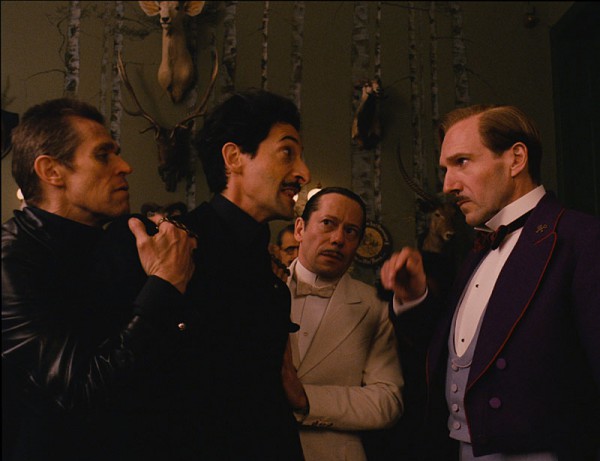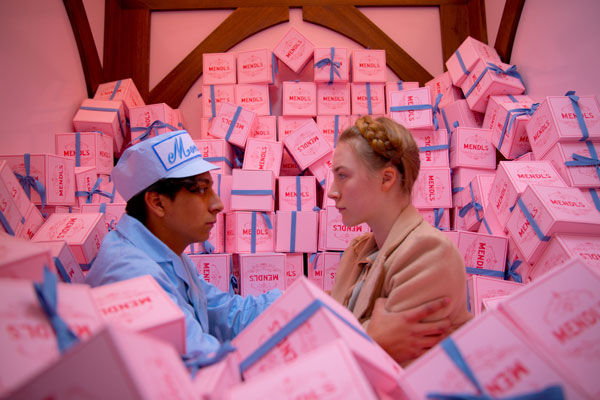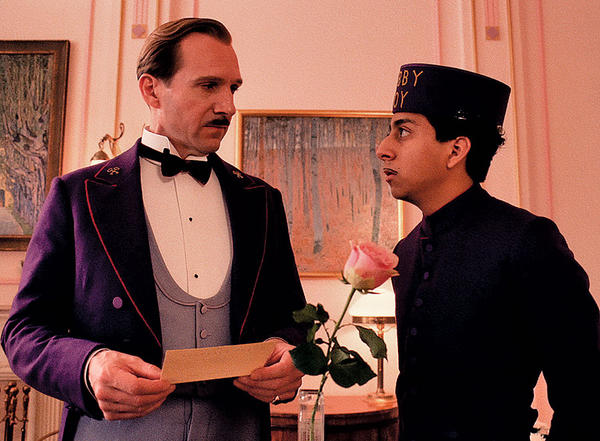The Grand Budapest Hotel Review
“The Grand Budapest Hotel” is Wes Anderson’s most imaginative effort yet. The perpetually quirky master of symmetry expands his scope in a way not seen since “The Life Aquatic,” but this story is infinitely more accessible and entertaining.
The film, set in a fictionalized version of Europe, takes an unusual storytelling approach. A now- deceased author (Tom Wilkinson) relays the story behind his most famous novel. When he was younger (played by Jude Law), he visited the once-infamous and decrepit Grand Budapest Hotel, where he comes upon the its owner, Zero Moustafa (F. Murray Abraham), who tells the story of how he came to own it. He’s the film’s primary narrator, telling the story of how as a young immigrant boy (Tony Revolori) he came under the tutelage of the hotel’s flamboyant and unapologetic concierge, M. Gustave (Ralph Fiennes).
Fiennes gives a much-welcome change of pace performance as Gustave that is both hilarious and delightful. The tone of “Grand Budapest” leans this way as well. Whereas most of Anderson’s films move from that quirky, dry humor into stark depictions of relationships, “Budapest” almost never loses its comic edge. Far and away, the film earns its label as Anderson’s funniest movie.

From the outside, the plot looks like a murder mystery farce. Gustave wins the affections of rich old women who stay at the hotel through flattery and sexual services. When one of his most devoted customers, Madame D. (Tilda Swinton) turns up murdered, she wills Gustave the priceless painting “Boy with Apple,” provoking the ire of Madame’s scornful son, Dmitri, (Adrien Brody). To ensure he gets what’s rightfully his, Gustave and Zero steal the painting and Gustave makes a deal to make Zero his heir in exchange for his help. The next day, Gustave is arrested for the murder and Zero tries to help him escape and prove his innocence.
Gustave and Zero form a hysterical but meaningful relationship. For all of Gustave’s risky, eccentric shenanigans, he grows fond and protective of the boy. This kind of friendship has never been the center of an Anderson film; usually, its sibling or family dysfunction. Consequently, “Budapest” is a bit shallower in character depth, opting for moments of pure entertainment than inward exploration. On the plus side, it does make “Budapest” more accessible than earlier Anderson films, which could now be considered a trend given that “Moonrise Kingdom” was even more so that way. Similar to that film, this one has a young romance with Zero becoming instantly fond and protective of Agatha (Saoirse Ronan).

The case of “Grand Budapest” extends well beyond Anderson’s circle of actors, relegated most of the usual suspects to cameos and small supporting roles. In doing so, Anderson proves he can direct any actor of reasonable talent into fitting with his style. This ensemble is especially vast, though the one real standout is Willem Dafoe as Jopling, Dmitri’s brass-knuckled henchman.
Anderson really ups the adventure and fun of “Grand Budapest” and celebrates his filmmaking style. He adds even more brightness, color, symmetry and hijinks, something he can get away with at this point in his career due to greater audience familiarity. He hasn’t gone his deepest, or really pushed himself as an intellectual, but “Grand Budapest” proves to be immensely satisfying.
4/5 Stars
The Grand Budapest Hotel
Directed by Wes Anderson
Written by Wes Anderson, Hugo Guinness, Stefan Zweig (inspired by works of)
Starring: Ralph Fiennes, Tony Revolori, F. Murray Abraham, Saoirse Ronan, Adrien Brody





0 Comments
You can be the first one to leave a comment.